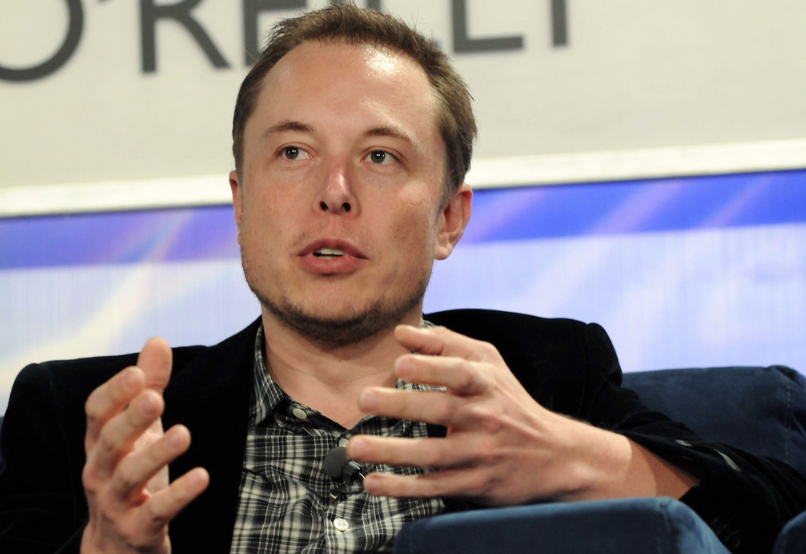"You know L.A. traffic, how the city slow," hip hop artist Drake explains in Nicki Minaj's 2014 'Only.' We know. Drake doesn't need to elaborate.
Traffic in Los Angeles is peerless and regularly tops lists as being the worst in the country. So when Elon Musk, the man behind ventures like SpaceX and Tesla Motors, tweeted in December that traffic was driving him nuts, he wasn't the first to come to that conclusion. But his solution was less familiar: a giant tunnel under the city.
"Am going to build a tunnel boring machine and just start digging," he tweeted at the time, adding, "I am actually going to do this."
Now it appears he has begun.
Musk recently announced workers had begun a "test trench" at the headquarters of his SpaceX in a suburb of Los Angeles near the airport. He told a crowd gathered for a design competition at SpaceX that he wanted to rethink tunnel boring technology and "improve tunneling speed by, I think, somewhere between 500 and 1,000 percent." Though the initial plan seems to be digging a tunnel between the headquarters and its parking, Musk has made it clear he has bigger goals.
“If you think of tunnels going 10, 20, 30 layers deep (or more), it is obvious that going 3D down will encompass the needs of any city’s transport of arbitrary size,” Musk told Wired, referring to his concept.
Indeed, tunnel boring machines could probably use an overhaul, given governments' high-profile struggles with the technology. In Seattle, the Alaskan Way Viaduct project -- initially scheduled for completion in December 2015 -- has been delayed to January 2019 after "Bertha," the tunnel boring machine digging under the city, broke down. That project is now drawing comparisons to Boston's infamous "Big Dig" tunnels project, which took two decades a build and ultimately cost several times its original budget.
Still, despite Musk's ambitions, many outlets have pointed out the hurdles with its own mysterious project, starting with the permitting, none of which seems to be in place. The city manager of Hawthorne, Calif., where SpaceX is located, told the Guardian newspaper that the city had talked with Musk about the idea but that no permits had been issued. The newspaper reported that neither the Los Angeles department of city planning nor the bureau of engineering were aware of any permit applications, and a tunnel beneath a public right of way would require city council approval. The newspaper also reported that California's state transportation department said there were no permit applications.
Then there's the effectiveness of tunnels as a solution to traffic.
"A tunnel wouldn’t reduce traffic. Nor would a new highway, or five new highways," wrote Alex Davies for Wired. "Blame the law of induced demand, which says the more roads you build, the more people come out to use them. As Gilles Duranton and Matthew A. Turner write in The Fundamental Law of Road Congestion: Evidence from US Cities, '[Vehicle-kilometers traveled] increases proportionately to roadway lane kilometers for interstate highways.' In other words, mo’ tunnel, mo’ traffic."
To further add to the speculation, just days ago, Musk hinted on Twitter that he may be interested in combining his tunnel boring technology with his much-hyped Hyperloop system, his proposed mode of transportation that would allow people to travel in pods at speeds faster than airplanes.
Does it all seem confusing? Even Musk agrees. "We have no idea what we're doing. I want to be clear about that," Musk told a crowd last month,
But there's a more insidious logic at work. Some have speculated Musk's effort might be the sort of blockbuster infrastructure project led by a private company that attracts President Donald Trump, who's expressed an interest in public-private partnerships around infrastructure and who tapped Musk to serve on his administration's business council.
Nevertheless, it's unclear how the tunnel might function. If the speculation is right, it certainly wouldn't be the first public-private infrastructure project, an increasingly common mechanism.
Even short of projects like privately-owned highways, the potential for private parties to control infrastructure decisions poses a threat to the public interest. As Stephen Graham and Simon Marvin wrote in the landmark 2001 Splintering Urbanism, "configurations of infrastructure networks are inevitably imbued with biased struggles for social, economic, ecological and political power." In other words, "the construction of spaces of mobility and flow for some, however, always involves the construction of barriers for others."
Writing about the variety of networks that constitute urban life, Graham and Marvin described an unbundling of goods, citing things like 'smart' highways, access-controlled streets, CCTV-surveilled downtown skywalks -- or in Houston, downtown tunnels -- and personalized multimedia, among other developments.
The impact of this uneven, often profit-oriented development of infrastructures is a more "dislocated" city, they write: Some spaces and people benefit from "secessionary networked spaces," others don't. "Virtually all cities across the world are starting to display spaces and zones that are powerfully connected to other 'valued' spaces across the urban landscape as well as across national, international and even global distances," write Graham and Marvin.
With so many details missing from Musk's tunnel vision, it's unclear what kind of space he's envisioning. Knowing Musk, it's almost certain to be revolutionary. It's also worth considering how private interests can impact urban infrastructure.


